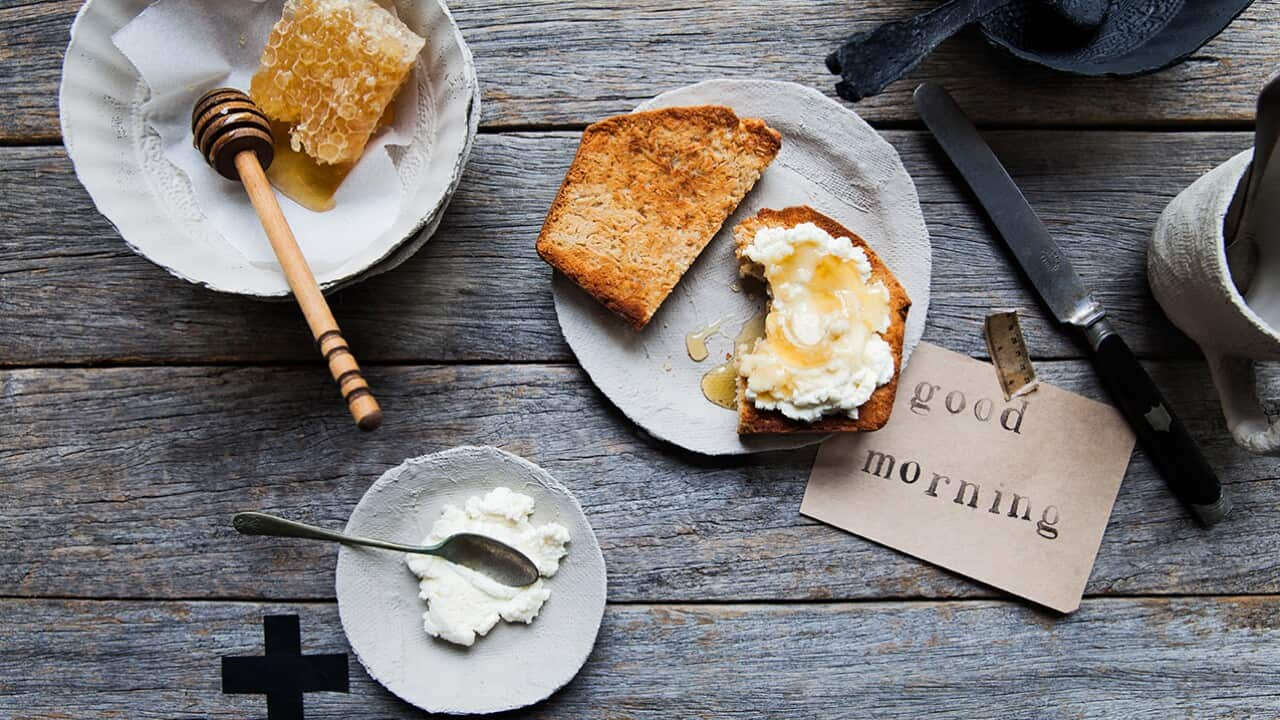The shoppers spotting a well-priced tub of golden honey sitting on a fruit shop shelf, its logo announcing it as “Victoria Honey”, might understandably have thought they were buying honey from the state of Victoria. The thing is, the honey in question was not from the state of Victoria, despite what the label might have implied. Nor, as it turned out, was it even honey at all.
The product’s name – Victoria Honey – was the first red flag for the Australian Honey Bee Industry Council (AHBIC), given this particular honey was labelled as imported from Turkey. It was being distributed in Australia by a Melbourne-based company called Basfoods (Aust) Pty Ltd. “We put a complaint in to the Australian Competition and Consumer Commission (ACCC) that the name ‘Victoria’ could influence people who were buying it to think it was coming from [the state of] Victoria,” says council executive director Trevor Weatherhead. Their complaint was filed back in September 2012.
“We could see that stuff was coming in at a ridiculously low price compared to what honey is sold for around the world,” he says, referring to Australian Bureau of Statistics figures. The AHBIC regularly checks these to keep up to date with the imported honeys on sale in Australia. That was the second sign that something was fishy with Victoria Honey.
The AHBIC sent a tub of it to Germany to be tested for C4 sugars – the industry term for sugars derived from plant sources, like corn or sugar cane – as there are currently no facilities in Australia that can do this type of testing. Honey itself is termed a C3 sugar. “There were 5 or 6 different products all coming from Turkey, all prepacked. When we had them all analysed, they were all 100 per cent C4 sugars. The analysis from Germany said most likely corn syrup,” says Weatherhead.
So what's the chance we're buying, or eating, fake honey now?
Food Standards Australia New Zealand (FSANZ) sets out to protect public health and safety when it comes to food matters. The Australia New Zealand Food Standards Code as the natural sweet substance produced by honey bees from the nectar of blossoms, which the bees transform themselves within the beehive into honey.
“It must not be adulterated by adding other substances, such as cheaper sugars from other sources,” says FSANZ communications manager Lorraine Haase. “Also, water cannot be added to dilute out the honey, so increasing the volume of the product.”
“If you wanted to add glucose to honey, you could call it ‘honey and glucose’, but you can’t call it ‘honey’ if it's not 100 per cent honey. It’s got to have another name added to it,” Weatherhead explains. Make your own crumpets to slather with indulgent whipped honey butter using .
Make your own crumpets to slather with indulgent whipped honey butter using .

Source: SBS Food
While FSANZ is responsible for developing and maintaining the requirements laid down in the code, the enforcement of those standards resides with state and territory agencies, as well as with the federal Department of Agriculture and Water Resources in relation to imported food. When it comes to upholding fair trading and consumer rights, the ACCC is responsible for taking action.
In June 2014, over the Victoria Honey label and its plant sugar-contaminated ‘honey’. Later that year, for including an Australian map on one of its product’s labels, a Turkish ‘honey’, which was also revealed to be made up of mostly C4 sugars.
“It’s a lot less [cost] than what honey is, so by using the corn syrup they’d definitely be making a lot of money out of it,” says Weatherhead. “I would suspect this Turkey situation came from people who never had any beekeeping background, [that] it was just a straight commercial operation to make money.” There are no cases of fake Australian-produced honey that he’s aware of. Weatherhead is confident that consumers in Australia need not worry about buying fake honey in future. “People are checking all the time,” he says.
Plus, late last year, the Department of Agriculture and Water to include new tests for C4 sugars. “They normally only test 5 per cent of honey that comes into Australia, but now they will test 100 per cent of anything that comes in from Turkey,” Weatherhead says.
We keep an eye out, we beekeepers in particular, because it’s in our interest to make sure that what’s out there is 100 per cent honey.
Just recently, the Department of Industry, Innovation and Science announced to take effect from July this year, which will see changes to country of origin labelling. According to the announcement, “In addition to a statement about where the food was produced, grown, made or packaged, most Australian food will carry the familiar kangaroo symbol and an indication of the proportion of Australian ingredients by weight through a statement and a bar graph. The new system will also see clearer rules around when food labels can carry ‘made in’ or ‘packed in’ statements.”
Previously, food products sold in Australia that incorporated foreign ingredients did not need to denote what proportion of Australian versus imported ingredients made up the product. These simply said “made in Australia from local and imported ingredients” – a situation , stating this was unclear. This is just one aspect of these changes, but it’s relevant for honey, given that some brands sold in Australia are a blend of Australian honey and imported honey.
Meanwhile, the AHBIC is keeping a vigilant watch. “We keep an eye out, we beekeepers in particular, because it’s in our interest to make sure that what’s out there is 100 per cent honey,” says Weatherhead. “We have no problem competing with overseas honey, as long as it is honey.”
For now, it seems we can be pretty confident we’re slathering real honey on our toast, crumpets and croissants.













